
To Reach the Nations Ear
THE AMERICAN WAYS SERIES

General Editor: John David Smith
Charles H. Stone Distinguished Professor of American History
University of North Carolina at Charlotte
From the long arcs of Americas history, to the short time frames that convey larger stories, American Ways provides concise, accessible topical histories informed by the latest scholarship and written by scholars who are both leading experts in their fields and polished writers.
Books in the series provide general readers and students with compelling introductions to Americas social, cultural, political, and economic history, underscoring questions of class, gender, racial, and sectional diversity and inclusivity. The titles suggest the multiple ways that the past informs the present and shapes the future in often unforeseen ways.
CURRENT TITLES IN THE SERIES
How America Eats: A Social History of U.S. Food and Culture, by Jennifer Jensen Wallach
Popular Justice: A History of Lynching in America, by Manfred Berg
Bounds of their Habitation: Race and Religion in American History, by Paul Harvey
National Pastime: U.S. History through Baseball, by Martin C. Babicz and Thomas W. Zeiler
Wartime America: The World War II Home Front, Second Edition, by John W. Jeffries
Enemies of the State: The Radical Right in America from FDR to Trump, by D. J. Mulloy
Hard Times: Economic Depressions in America, by Richard Striner
Litigation Nation: How Lawsuits Represent Changing Ideas of Self, Business Practices, and Right and Wrong in American History, by Peter Charles Hoffer
We the People: The 500-Year Battle Over Who Is American, by Ben Railton
Of Thee I Sing: The Contested History of American Patriotism, by Ben Railton
American Agriculture: From Farm Families to Agribusiness, by Mark V. Wetherington
Hoops: A Cultural History of Basketball in America, by Thomas Aiello
Years of Rage: White Supremacy in the United States from the 1920s to Today, by D. J. Mulloy
Germans in America: A Concise History, by Walter D. Kamphoefner
American Exceptionalism, by Volker Depkat
Making Americas Public Lands: The Contested History of Conservation on Federal Lands, by Adam Sowards
To Reach the Nations Ear: A History of African American Public Speaking, by Richard W. Leeman
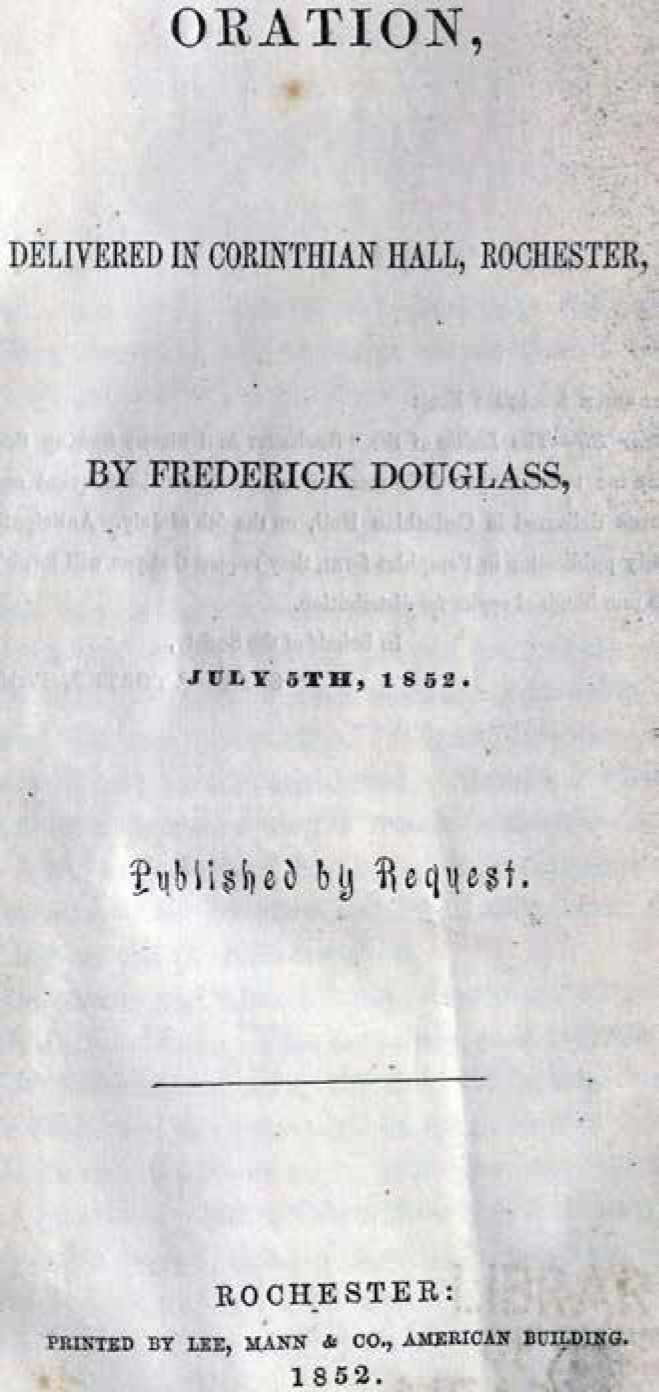
Douglass, Frederick, 18181895, Oration, Delivered in Corinthian Hall, Rochester, by Frederick Douglass, July 5th, 1852. Black Self-Publishing, accessed April 19, 2022, https://www.americanantiquarian.org/blackpublishing/items/show/10957.
Published by Rowman & Littlefield
An imprint of The Rowman & Littlefield Publishing Group, Inc.
4501 Forbes Boulevard, Suite 200, Lanham, Maryland 20706
www.rowman.com
86-90 Paul Street, London EC2A 4NE
Copyright 2023 by The Rowman & Littlefield Publishing Group, Inc.
All rights reserved. No part of this book may be reproduced in any form or by any electronic or mechanical means, including information storage and retrieval systems, without written permission from the publisher, except by a reviewer who may quote passages in a review.
British Library Cataloguing in Publication Information Available
Library of Congress Cataloging-in-Publication Data
Names: Leeman, Richard W., author.
Title: To reach the nations ear : a history of African American public speaking / Richard W. Leeman.
Description: Lanham : Rowman & Littlefield, [2022] | Series: American ways | Includes bibliographical references and index.
Identifiers: LCCN 2022021950 (print) | LCCN 2022021949 (ebook) | ISBN 9781538112311 (cloth) | ISBN 9781538112328 (ebook)
Subjects: LCSH: African AmericansHistorySource. | Speeches, addresses, etc., AmericanAfrican American authors. | Political oratoryUnited StatesHistory.
Classification: LCC E185 .L435 2022 (ebook) | LCC E185 (print) | DDC 973/ .0496073 23/eng/20220dc22
LC record available at https://lccn.loc.gov/2022021950
 The paper used in this publication meets the minimum requirements of American National Standard for Information SciencesPermanence of Paper for Printed Library Materials, ANSI/NISO Z39.48-1992.
The paper used in this publication meets the minimum requirements of American National Standard for Information SciencesPermanence of Paper for Printed Library Materials, ANSI/NISO Z39.48-1992.
Contents
Guide
THIS BOOK HAS BEEN MANY YEARS in the making. My abiding interest in African American public speaking was sparked in the fall of 1979, when I was fortunate enough to take Dr. Lyndrey Niless Rhetoric of Black America class at the University of Maryland. Dr. Niles was then chair of the Department of Communication Studies at Howard University and kind enough to come to our campus one evening a week to lead a class that no one else had the background to teach. I knew very little about so many of the leaders we discussed, and even less about their actual speeches. I was frustrated that there were so few accounts of these speakers, nor a single source to consult as a starting place. Speeches and analyses of those speeches were dispersed in many different, often hard-to-find locations. A decade later, when I returned studying African American public speaking, I quickly discovered that I hoped to eventually write an introductory text that would provide readers with a helpful starting place. This book is the culmination of that aim.
In a larger sense, however, the making of this book began in colonial times, when African Americans first began speaking to audiences large and small. In the introduction, I outline how important public speaking has been to African Americans and their community as well as to Americans of all races. These speakers have contributed mightily to what the nation has thought and what it has done. Theirs is a long, rich, and complex story that continues today in forums large and small, poor and wealthy, religious and secular.
Of course, this volume is also the product of contributions made by many colleagues and collaborators. I want to thank series editor John David Smith for bringing to me this opportunity to fulfill a (scholarly) lifetime ambition and for his many helpful comments. He made this a far better book. I also appreciate Cynthia King and Andre Johnson for reading and commenting on the manuscript. Jordan Whitley and Heather Stegner were helpful in identifying potential photographs and for tracking down hard-to-find speech texts. My colleagues at UNC Charlotte have continued to nurture a supportive environment within which to conduct scholarship, and I particularly thank my chair, Jason Black, and my dean, Nancy Gutierrez, for their work as groundskeepers of that space. From the Rowman & Littlefield team, I want to thank Jon Sisk for his editorial support, guidance, and patience and Sarah Sichina and Katherine Berlatsky, assistant acquisition editors, for their conscientious and efficient work to help complete this project. I also benefited from the work of Crystal Branson, production editor, and photographic help early on from Dina Guilak and Bejamin Knepp. Any errors in the book are of course of my own making.
For my part, I found this to be the most difficult book I have written. I wanted the volume to be comprehensive but detailed enough to provide readers with an appreciation for the speakers and their speeches. Without the love, support, and encouragement of my wife, Carol, this book would not have been completed. As always, she has been my helpmate on this journey.
Next page

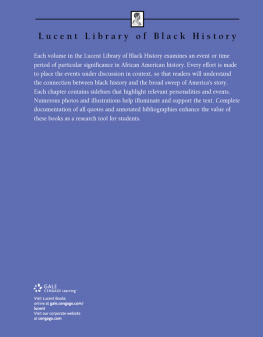
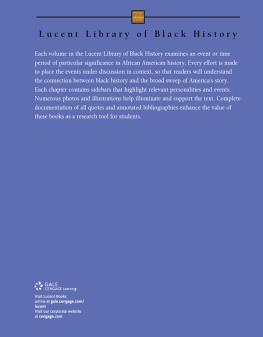
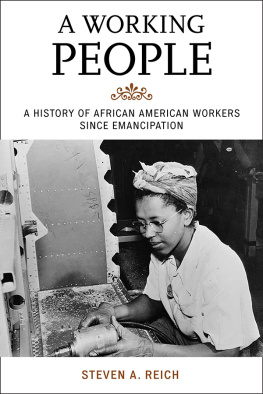
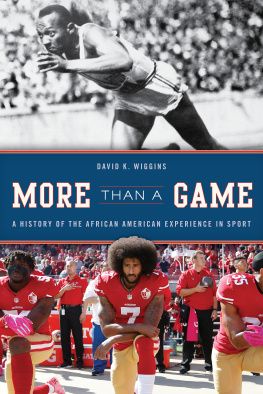
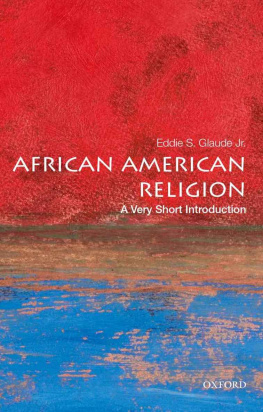
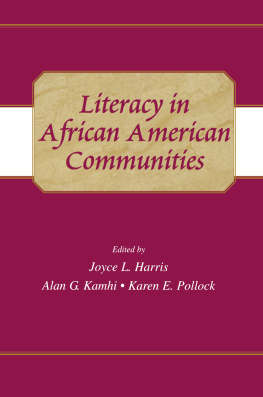



 The paper used in this publication meets the minimum requirements of American National Standard for Information SciencesPermanence of Paper for Printed Library Materials, ANSI/NISO Z39.48-1992.
The paper used in this publication meets the minimum requirements of American National Standard for Information SciencesPermanence of Paper for Printed Library Materials, ANSI/NISO Z39.48-1992.